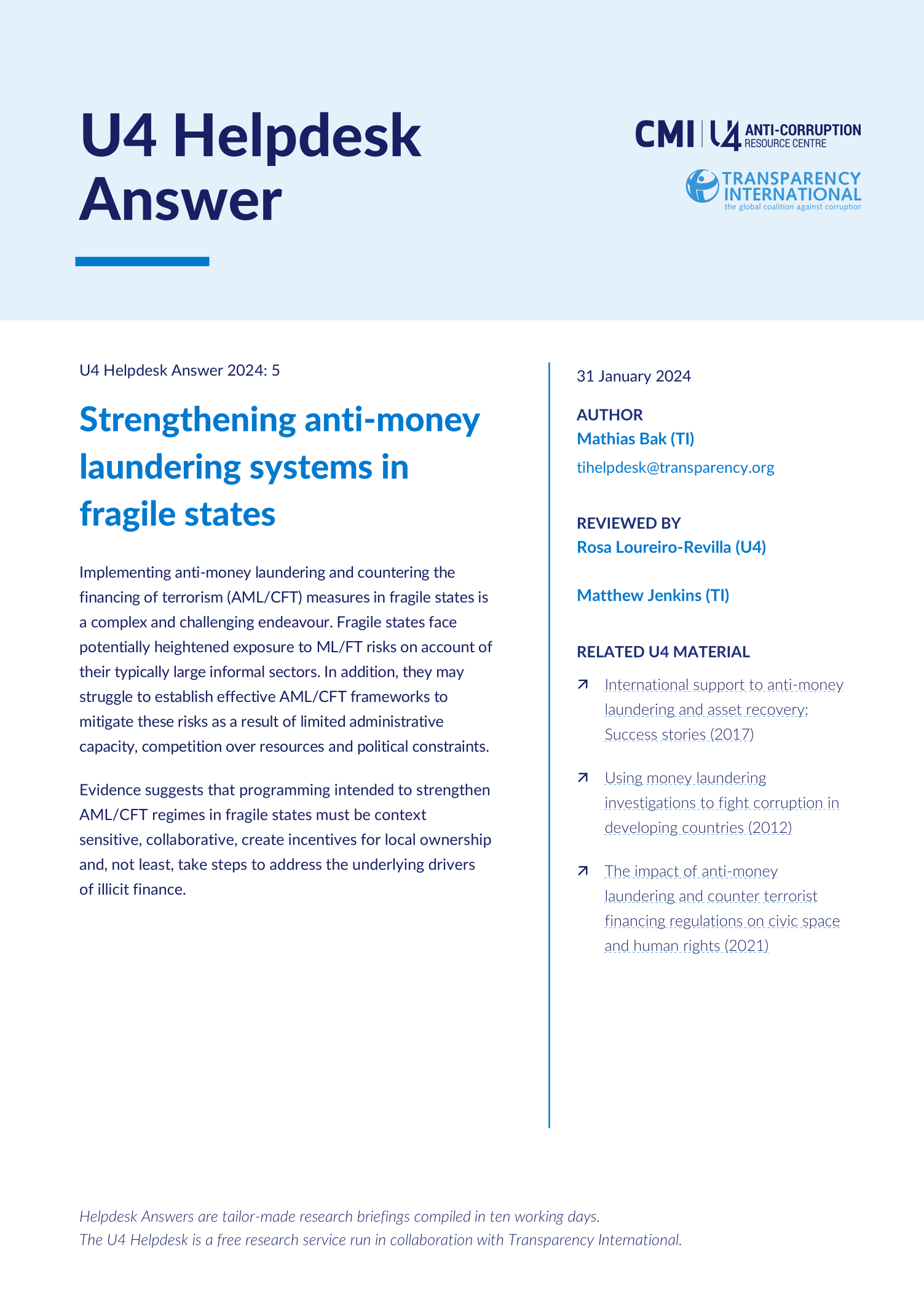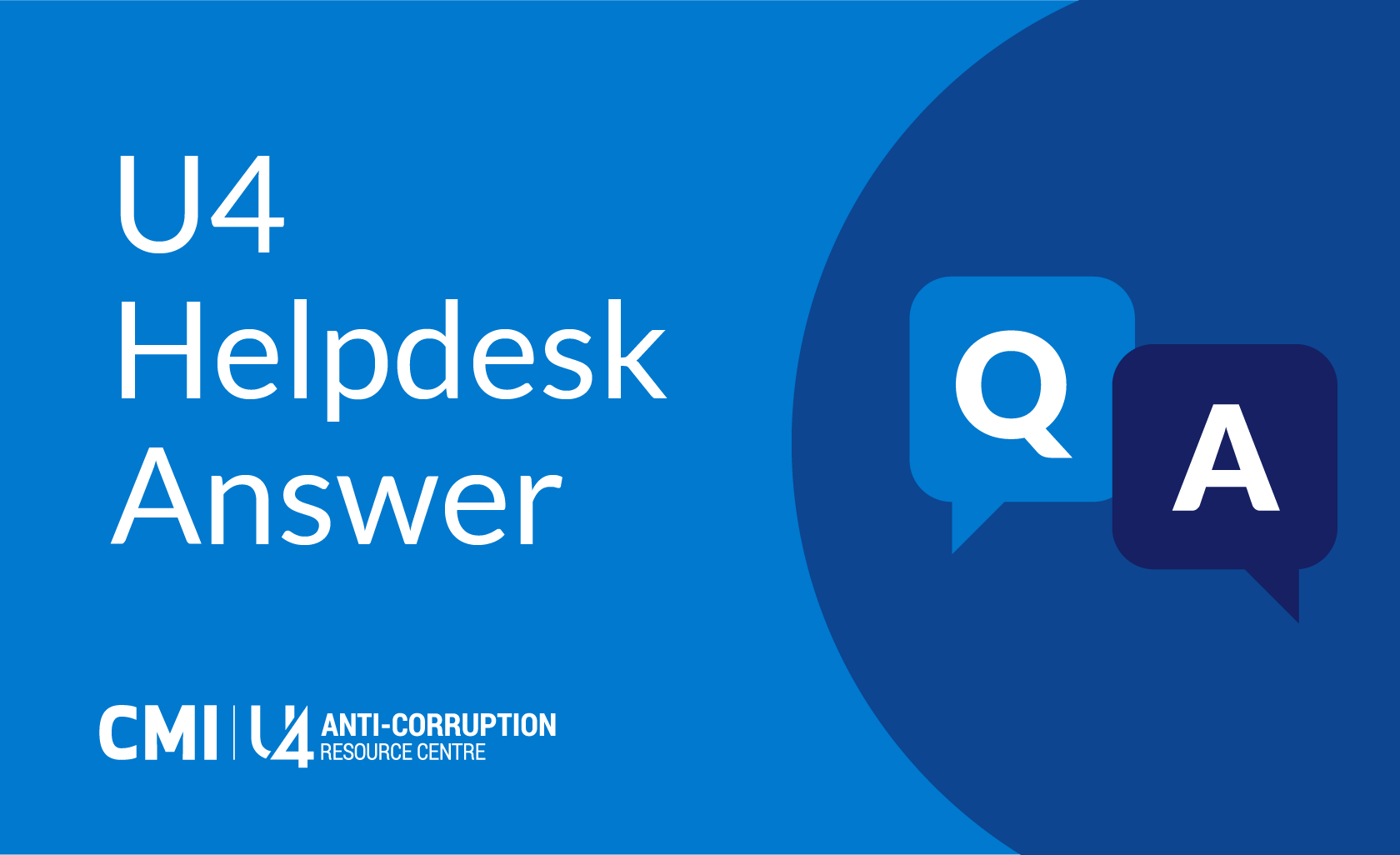Main points
- Tackling sophisticated forms of financial crime relies on considerable state capacity, resourcing and political backing. It is precisely these conditions that are likely to be absent in fragile settings.
- Implementation of AML/CFT measures in fragile states has traditionally tended to focus on technical compliance over feasible reform objectives and de facto enforcement.
- Donor-driven approaches typically aim to enhance the institutional, legal and operational frameworks in aid-recipient countries. Typical modalities include technical assistance, capacity building and policy reform efforts.
- Addressing AML/CFT deficits in fragile states requires an in-depth understanding of institutional needs, political economy challenges and a tailored strategy designed to secure buy-in from in-country actors.
- The active involvement of private sector entities and collaboration between public and private sectors in the development and implementation of AML/CFT strategies is essential to success.
- There are long-standing concerns about the unintended consequences of AML/CFT measures, particularly their impact on financial inclusion. Not giving due consideration to these potential unintended consequences may risk incentivising informal economic activities and increase the ML/TF risks.



